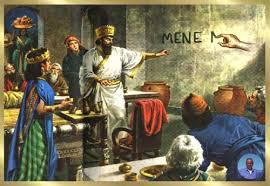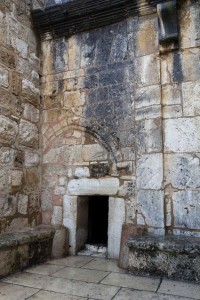Malachi To Christ’s Birth : 400 Years Of God’s Silence – Part Two
20 Sunday Dec 2015
Written by dennisghurst in Origins
Tags
Beyond the Cosmos, Billy Graham, C.S.Lewis, Charles Spurgeon, Christ, Christianity, Conservatism, Everlasting, Experience, Family, Freedom, Genealogy, God, Jesus Christ, Lessons, Liberty, Life, Posterity, Teaching, United States, Wisdom
Share it
But when the fulness of the time was come, God sent forth his Son, made of a woman, made under the law. ~ Galatians 4:4
As a lead-in to Part Two, the closing paragraph from last week’s Part One …
During this time Grecian influence was becoming strong in *Palestine. A party arose among the Jews called the Hellenists, who were very eager to bring Grecian culture and thought into the nation and to liberalize some of the Jewish laws. This forced a split into two major parties. There were those who were strong Hebrew nationalists, who desired to preserve everything according to the Mosaic order. They resisted all the foreign influences that were coming in to disrupt the old Jewish customs. This party became known as the Pharisees, which means “to separate.”
Continues….
On the other hand, the Hellenists – the Greek lovers – became more and more influential in the politics of the land, forming the party that was known in New Testament days as the Sadducees, the liberals. They turned away from the strict interpretation of the law and became the rationalists of their day, ceasing to believe in the supernatural in any way. We are told in the New Testament for instance, that they came again and again to the Lord with questions about the supernatural, like “What will happen to a woman who has been married to seven different men? In the resurrection, whose wife will she be?” (Matt. 22:23-33). They did not believe in a resurrection, but in these questions they were forever attempting to put Jesus on the spot.
During this time in Egypt, under the reign of one of the Ptolemies (circa 284 B.C.) the Hebrew scriptures were translated for the first time into another language. A group of 70 scholars was called together by the Egyptian king to make a translation of the Hebrew scriptures and so, book by book they translated the Old Testament into the Hellenistic Greek. When they had finished, it was given the name “the Septuagint”, which means 70, based on the number of translators. This ultimately became the Greek version of the Hebrew Bible and from it many of the quotations in the New Testament are derived, which explains why New Testament quotations of Old Testament verses are sometimes in different words, because they come from the Greek translation.

You have been found wanting…
Some eighty years later, around 203 B.C., Antiochus the Great came into power in Syria, to the north of Palestine, capturing Jerusalem from the Egyptians and beginning the reign of Syrian power over Palestine. He had two sons, one of whom succeeded him and reigned only a few years. When he died, his brother took the throne and this man, named Antiochus Epiphanes, became one of the most vicious and violent persecutors of the Jews ever known. In fact, he is often called the Antichrist of the Old Testament, since he fulfills some of the predictions of Daniel concerning the coming of one who would be “a contemptible person” and “a vile king.” His name (which he modestly bestowed upon himself) means “Antiochus the Illustrious”, but nevertheless, some of his own courtiers evidently agreed more with the prophecies of Daniel, and they changed two letters in his title, from Epiphanes to “Epipames”, which means “the mad man.”
His first act was to depose the high priest in Jerusalem, thus ending the long line of succession which began with Aaron and his sons through the many centuries of Jewish life. Under his reign, the city of Jerusalem and all the religious rites of the Jews began to deteriorate as they came fully under the power of the Syrian king. In 171 B.C. Antiochus invaded Egypt and once again Palestine was caught in the nutcracker of rivalry. As a side note, Palestine is the most fought-over country in the world, and Jerusalem is the most captured city in all history. It has been pillaged, ravished, burned and destroyed more than 27 times in its history. While Antiochus was in Egypt, it was reported that he had been killed in battle, and Jerusalem rejoiced. When the report reached Antiochus (who was very much alive in Egypt) that Jerusalem was delighted at the report of his death, he organized his armies and swept like a fury back across the land, falling upon Jerusalem with terrible vengeance.
He overturned the city, regained his power, and intruded into the very Holy of Holies in the temple itself. Some 40,000 people were slain in three days of fighting and when he forced his way into the Holy of Holies, he destroyed the scrolls of the law and, to the absolute horror of the Jewish people, took a sow and offered it upon the sacred altar. Then with a broth made from the flesh of this unclean animal, he sprinkled everything in the temple, thus completely defiling and violating the sanctuary. It was that act of defiling the temple which is referred to by Jesus Christ as the “desolating sacrilege” which Daniel had predicted (Matt. 24:15), and which also became a sign of the coming desolation when Antichrist himself will enter the temple, call himself God, and thus defile the temple in that time. As we know from the New Testament, that still lies in the future.

When the fulness of the time was come, God sent forth his Son…
Daniel the prophet had declared the sanctuary would be polluted for 2300 days. (Dan. 8:14) In exact accordance with that prophecy, it was exactly 2300 days – six and a half years – before the temple was cleansed under the leadership of a man now famous in Jewish history, Judas Maccabaeus. He was one of the priestly line who, with his father and four brothers, rose up in revolt against the Syrian king. They captured the attention of the Israelites, summoned them to follow them into battle, and in a series of pitched battles in which they were always an overwhelming minority, overthrew the power of the Syrian kings, captured Jerusalem and cleansed the temple; the day of which was named the Day of Dedication, which symbolically occurred on the 25th day of December. As we Christians celebrate the birth of Christ each year, the Jewish people celebrate the Feast of Dedication.
The Maccabees, who were of the Asmonean family, began a line of high priests known as the Asmonean Dynasty. For the following three or four generations, their sons ruled as priests in Jerusalem, all the while having to defend themselves against the assaults of the Syrian army who constantly attempted to recapture the city and the temple. During the days of the Maccabees there was a temporary overthrow of foreign domination, which is why the Jewish people look back to this time and regard it with such tremendous veneration.

Church of the Nativity, Bethlehem … Empty like the tomb…
It was during this period that the Asmonean priests made a league with the rising power in the West, Rome, signing a treaty with the Senate of Rome, providing for help in the event of Syrian attack. Though the treaty was made in all earnestness and sincerity, it was this pact which introduced Rome into the picture and history of Israel. As the battles between the two opposing forces waged hotter and hotter, Rome was watchful. Finally, the Governor of Idumea, a man named Antipater and a descendant of Esau, made a pact with two other neighboring kings and attacked Jerusalem to try to overthrow the authority of the Asmonean high priest. This battle raged so fiercely that Pompey, the Roman general, who had an army in Damascus at the time, was besought by both parties to intervene. Pompey came down from Damascus, entered the city of Jerusalem – again with terrible slaughter – overthrew the city and captured it for Rome. From that time on, 63 B.C., Palestine was under the authority and power of the Roman Empire.
As a result of that victory, Pompey and the Roman Senate appointed Antipater as the Procurator of Judea, and he in turn made his two sons kings of Galilee and Judea. The son who became king of Judea is known to us as Herod the Great. (“Now when Jesus was born in Bethlehem of Judea in the days of Herod the king, behold, wise men from the East came to Jerusalem saying, ‘Where is he who has been born king of the Jews?'” ~ Matt. 2:1, 2). Meanwhile, the pagan empires within and around the vicinity of Palestine had been deteriorating and disintegrating. Their religions had fallen upon evil days and the people were sick of the polytheism and emptiness of their pagan faiths. The Jewish people had gone through difficult times of pressure and had failed in their efforts to re-establish themselves, having basically given up all hope. There was a growing air of expectancy that the only hope they had left was the coming at last of the promised Messiah. In the East, the oriental empires had come to the place where the wisdom and knowledge of the past had disintegrated and they too were looking for something far better than what they had. When the moment came as the star arose over Bethlehem, the wise men of the East who were looking for an answer to their problems saw it immediately and came out to seek the One it pointed to. Thus, “when the time had fully come, God sent forth his Son.”
But during this period also, was created that mass of tradition, comment and interpretation, known as Mishna, Gemara (forming the Talmud), Hallachoth, Mid-rashim and Kabbala, so superposed upon the Law that obedience was transferred from the Law itself to the traditional interpretation. During this period also arose the two great sects known to the Gospel narratives as Pharisees and Sadducees. The Herodians were a party rather than a sect. It is amazing how God utilizes history to work out his purposes. Though we are living in the days that also might be termed “the silence of God,” when for almost 2,000 years there has been no inspired voice from God, we must look back – even as they did during those 400 silent years – upon the inspired record and realize that God has already said all that needs to be said, through the Old and New Testaments.

God’s purposes have not ended, for sure. He is working them out as fully now as he did in those days, and just as the world had come to a place of hopelessness then, and the One who would fulfill all their hopes came into their midst, so the world again today is facing a time when despair is spreading widely across the earth. Hopelessness is rampant everywhere and in this time God is moving to bring to fulfillment all the prophetic words concerning the coming of his Son again into the world to establish his kingdom. How long? How close? Who knows? But what God has done many times before in history, he will do again as we approach the end of “the silence of God.”
Let us never forget, dear saints, that amongst such a people, governed under the suzerainty of Rome, by an Idumean usurper, rent by bitter and unspiritual religious controversies, and maintaining an elaborate religious ritual, appeared Jesus, the Son and Christ of God – “when the time had fully come, God sent forth his Son”.
And true to his promise Jesus is coming again: Let not your heart be troubled: ye believe in God, believe also in me. In my Father’s house are many mansions: if it were not so, I would have told you. I go to prepare a place for you. And if I go and prepare a place for you, I will come again, and receive you unto myself; that where I am, there ye may be also. And whither I go ye know, and the way ye know.” ~ John 14:1-4
*************************
Sources: 400 Years Of God’s Silence; C.I.Scofield commentary; and personal archives.
*Despite all the Islamic rhetoric about Palestine to the contrary, the word “Palestine” was used as long ago as 680 B.C. by Isaiah when he declared: “Rejoice not thou, whole Palestina, because the rod of him that smote thee is broken: Howl, O gate; cry, O city; thou, whole Palestina, art dissolved: (Isaiah 14: 29, 31) and is also mentioned in Joel 3:4 and in Exodus 15:14 … Palestine has been the home of Israel since God declared it and endowed it to Abraham, Isaac, and Jacob and their descendants.

Soli Deo Gloria!

 Link To DennisGHurst.com
Link To DennisGHurst.com


